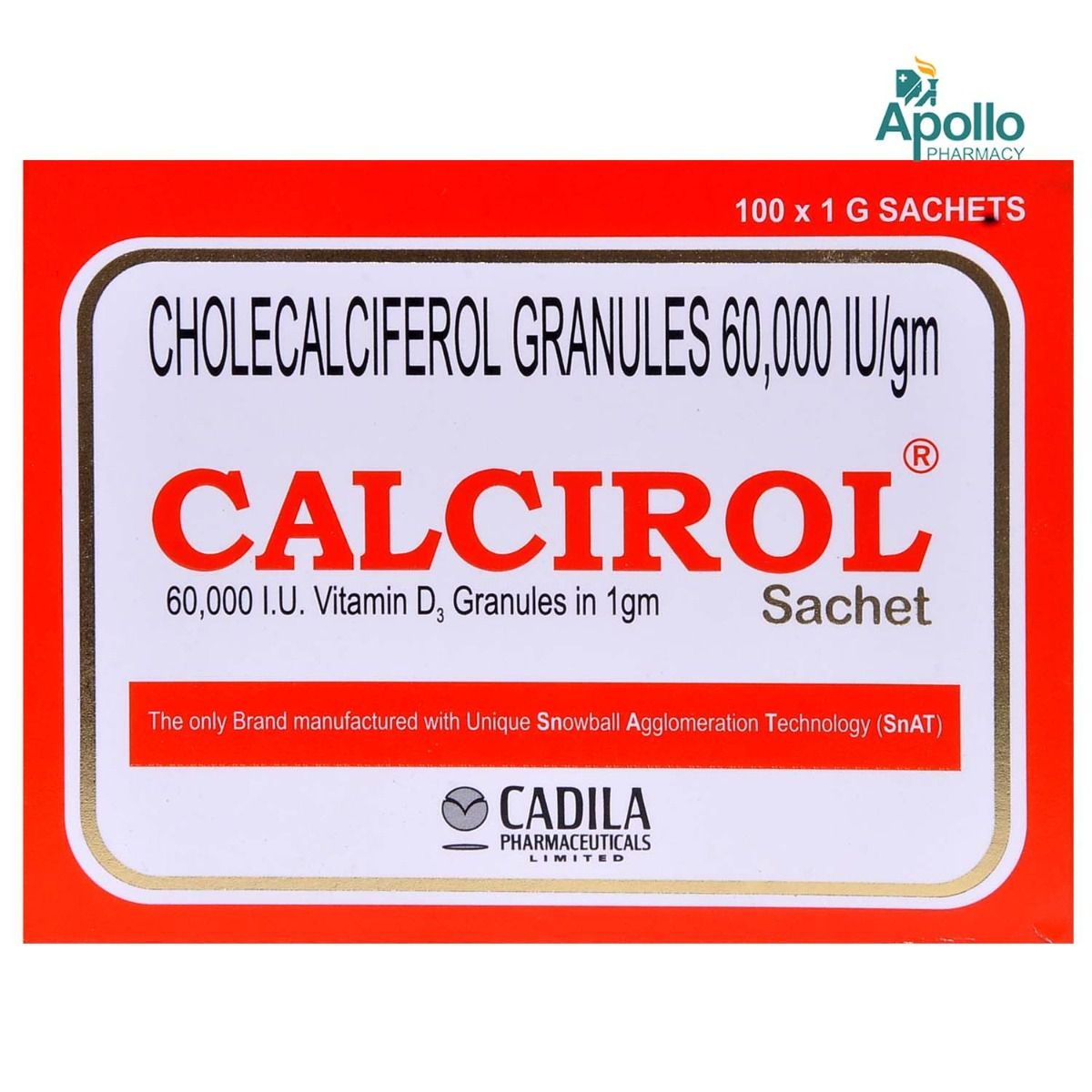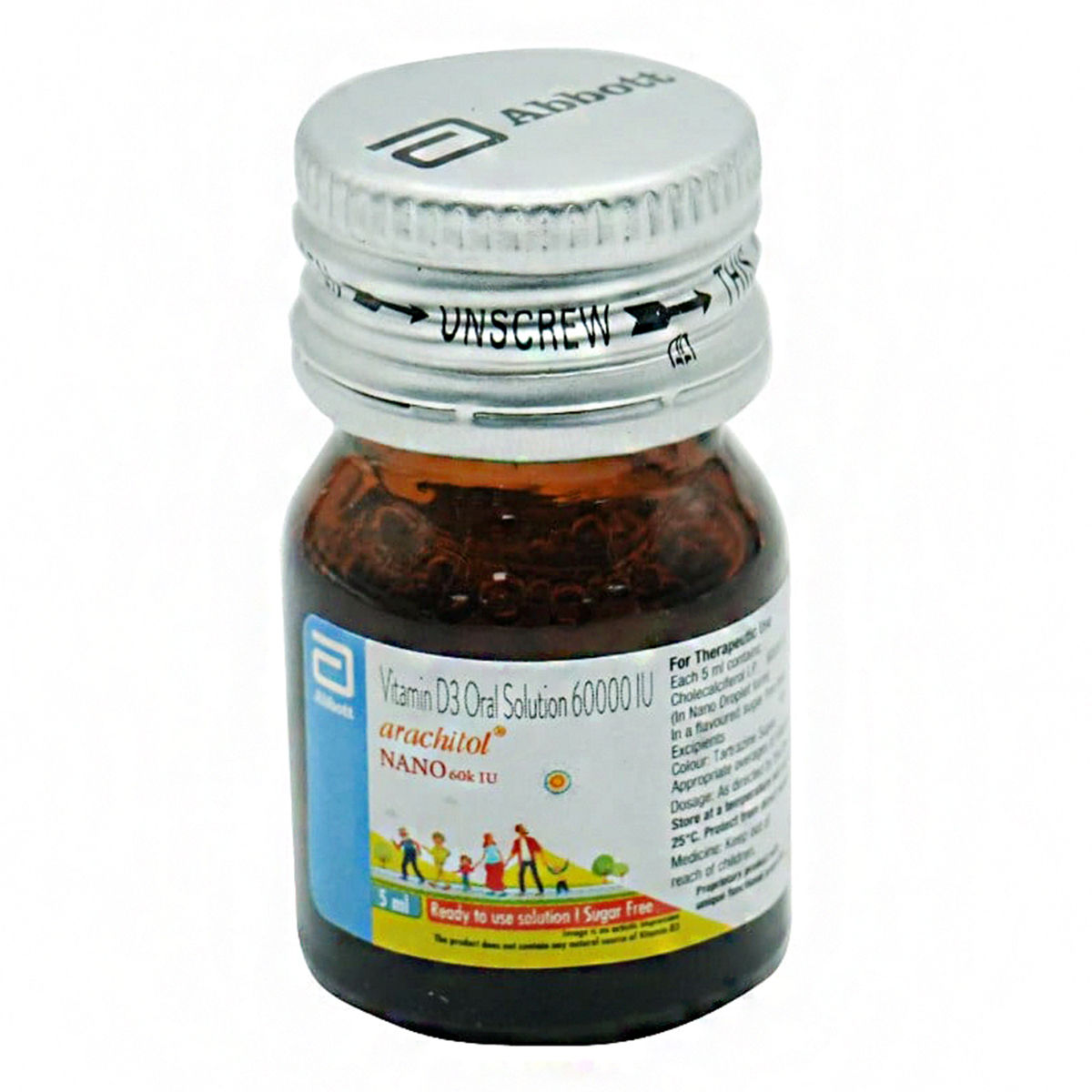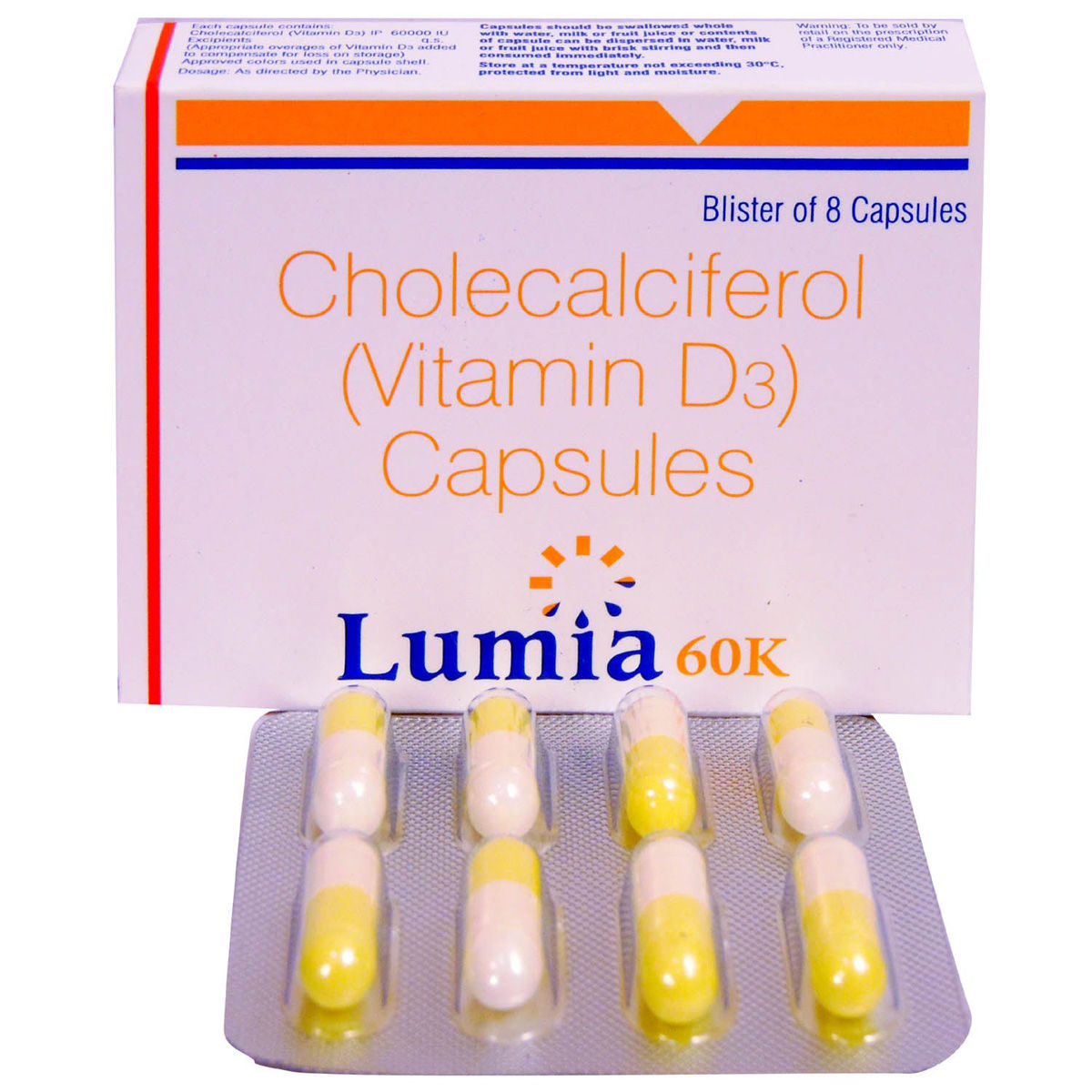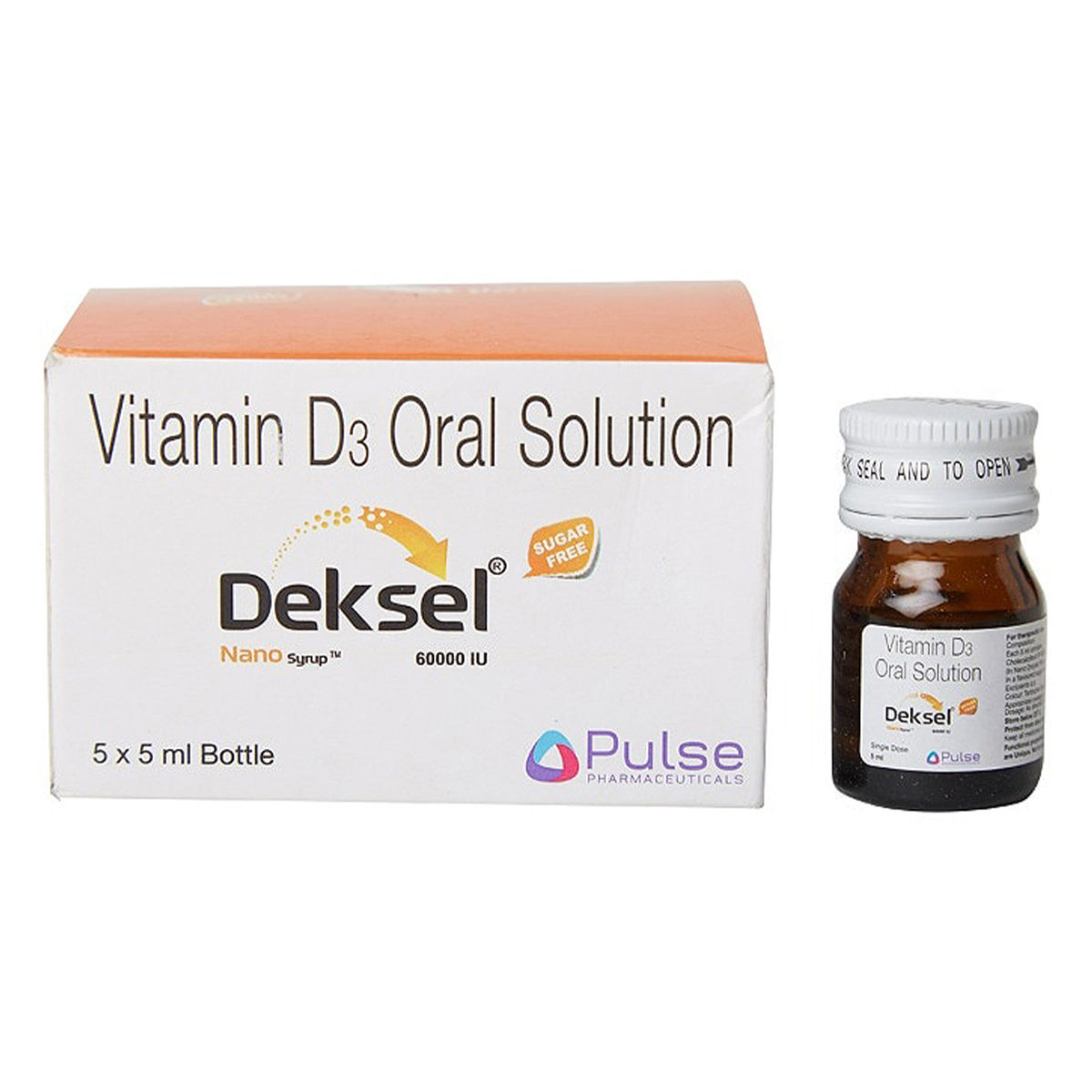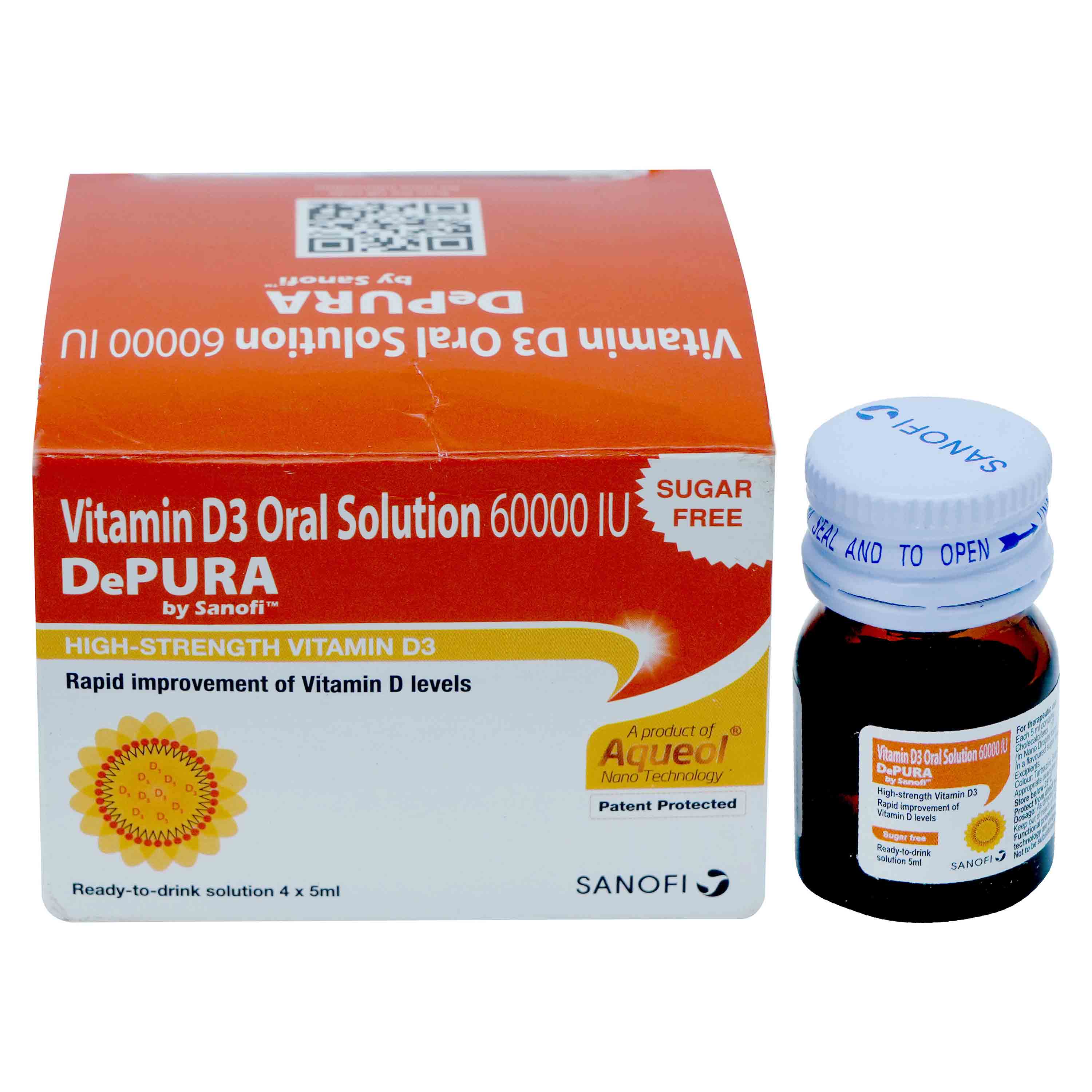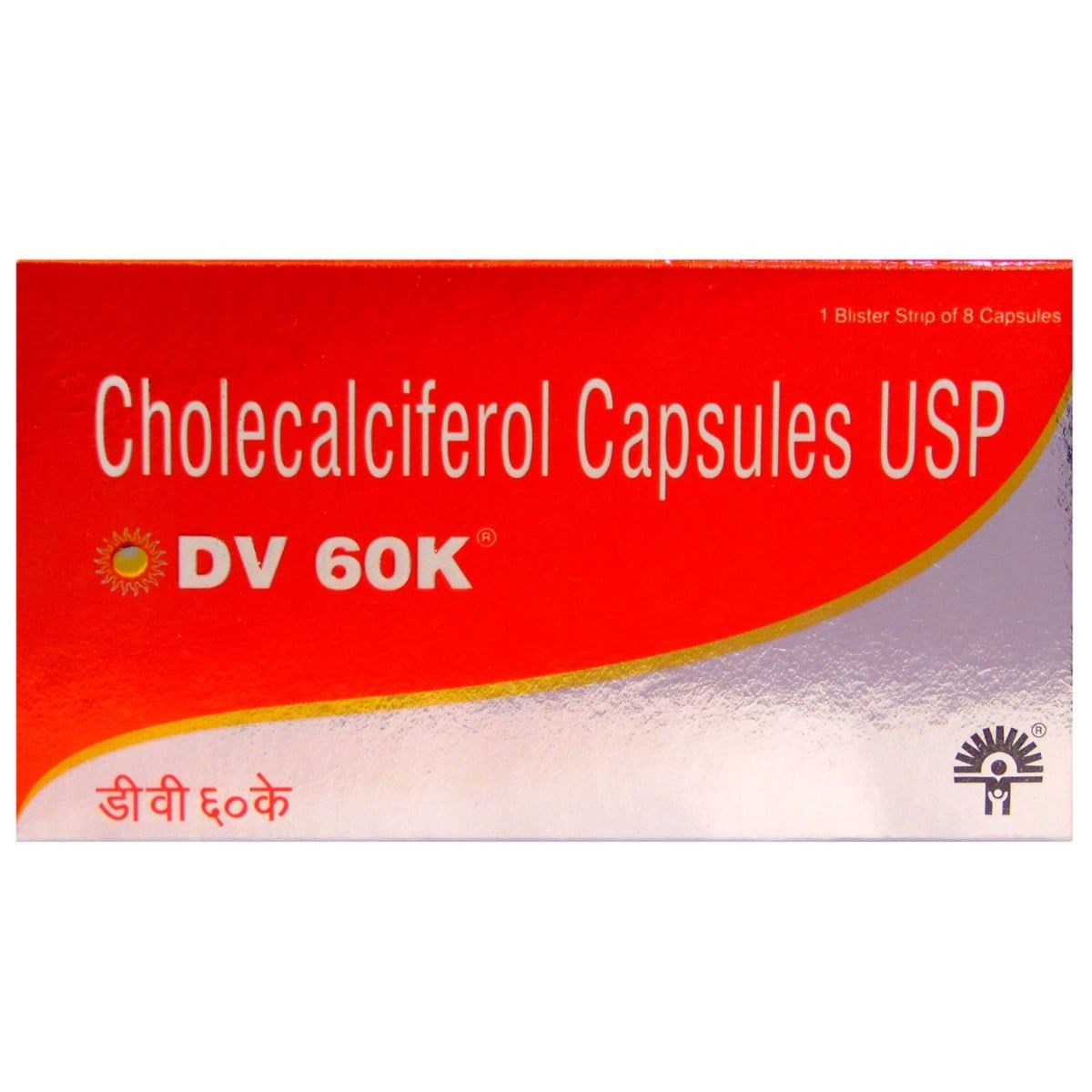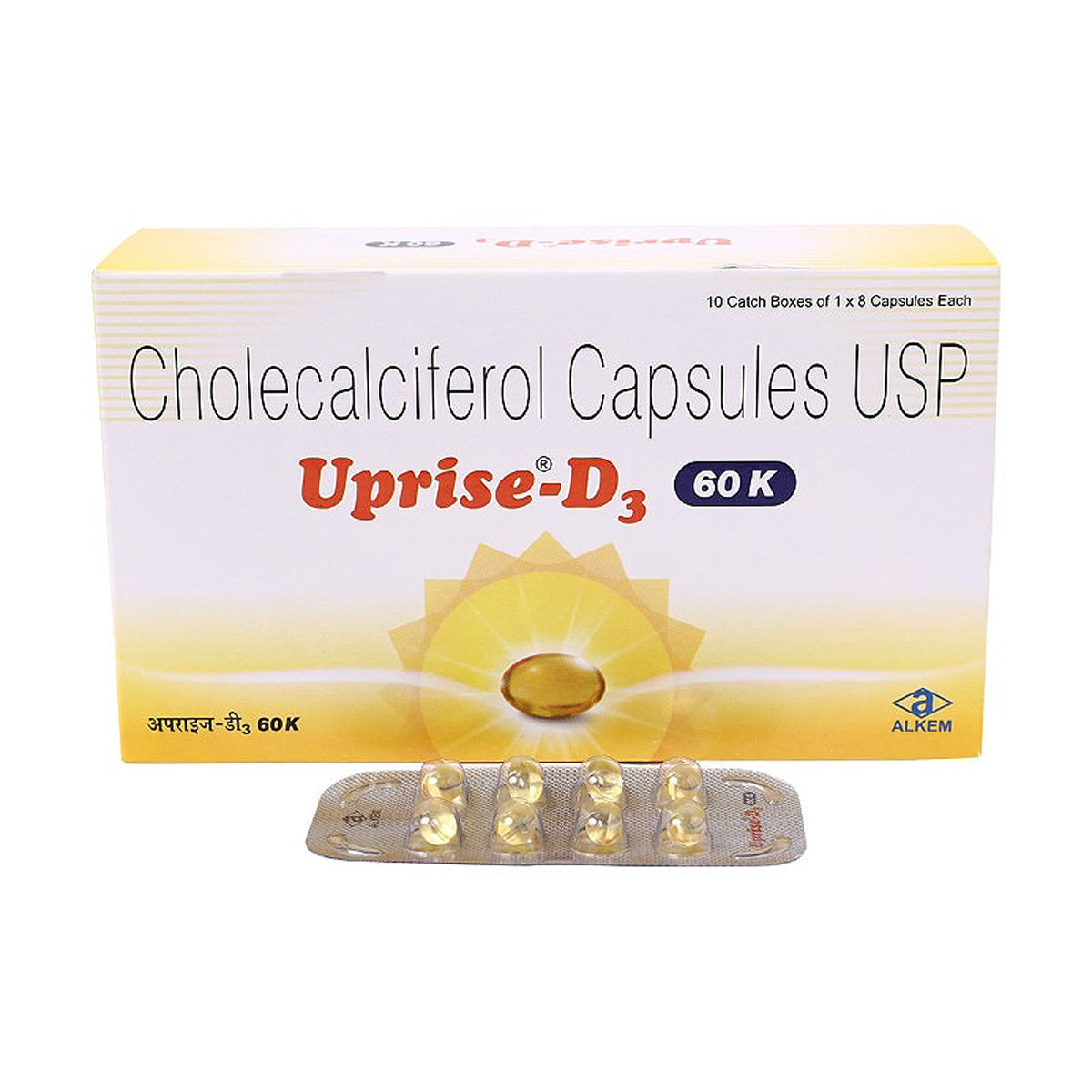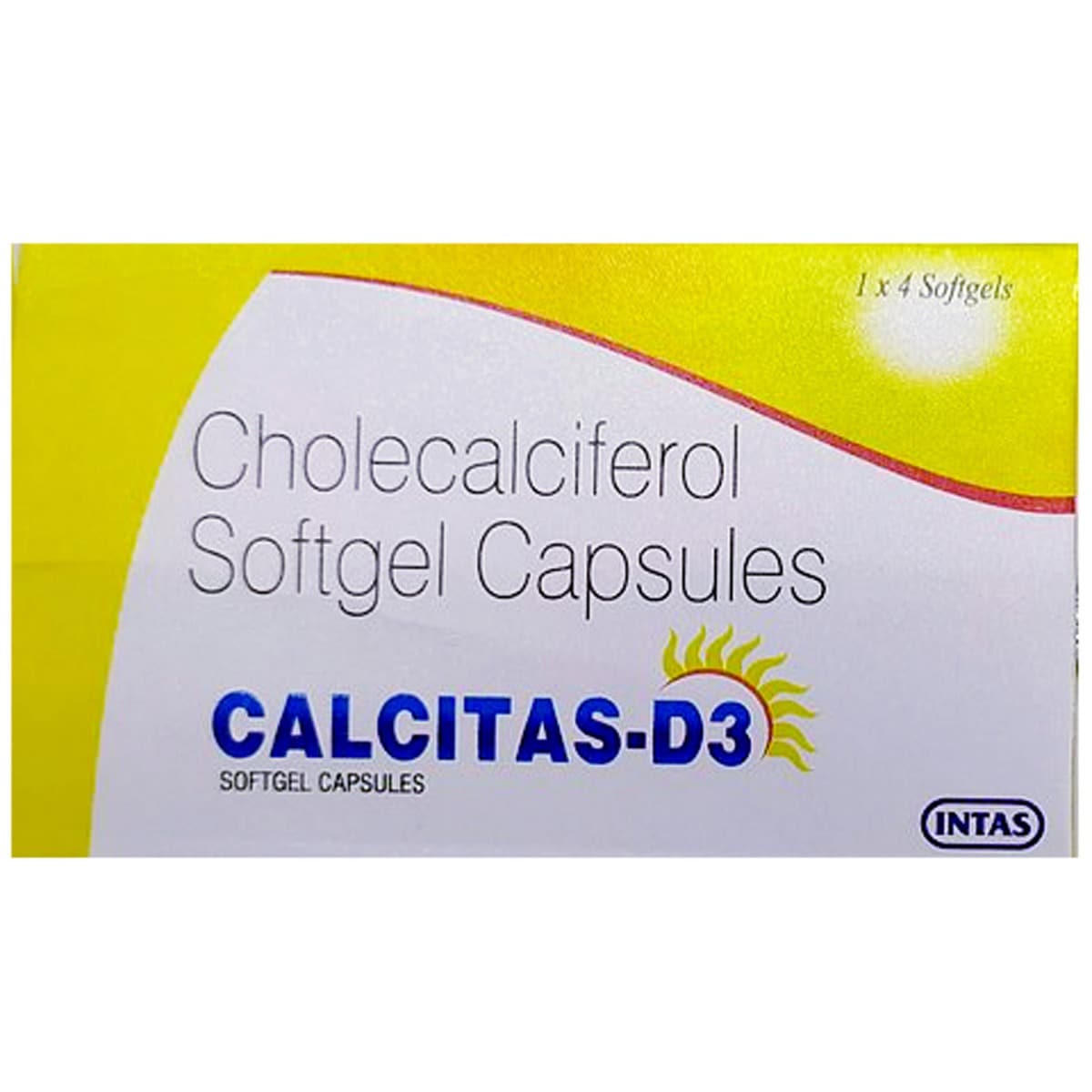D3 HD 60K Sugar Free Chewable Tablet 4's
D3 HD 60K Sugar Free Chewable Tablet used to prevent/treat vitamin D deficiency. It contains Cholecalciferol, which increases vitamin D levels in the body. In some cases, this medicine may cause side effects such as vomiting, nausea, constipation, and increased calcium levels in blood and urine. Inform the doctor if you are pregnant or breastfeeding, taking any other medication, or have any pre-existing medical conditions.
₹90.5*
MRP ₹100.5
10% off
₹85.42*
MRP ₹100.5
15% CB
₹15.08 cashback(15%)
Free Delivery
With Circle membership
(Inclusive of all Taxes)
This offer price is valid on orders above ₹800. Apply coupon PHARMA10/PHARMA18 (excluding restricted items)
Know Your Delivery Time
Provide Delivery Location




Secure Payment

India's Most Trusted Pharmacy

Genuine Products
Synonym :
Composition :
Manufacturer/Marketer :
Consume Type :
Return Policy :
Expires on or after :
About D3 HD 60K Sugar Free Chewable Tablet
D3 HD 60K Sugar Free Chewable Tablet belongs to the class of 'Vitamins', primarily used to treat low blood calcium levels. D3 HD 60K Sugar Free Chewable Tablet effectively treats various conditions in the body like Vitamin D deficiency, osteoporosis (weak and brittle bones), hypoparathyroidism (parathyroid glands make low levels of calcium in the body), latent tetany (a muscle disease with low blood calcium levels) and rickets or osteomalacia (softening or deforming of bones due to lack of calcium). Vitamin D deficiency occurs when your body has low Vitamin D levels and is caused by inadequate nutrition, intestinal malabsorption, or lack of sunlight exposure.
D3 HD 60K Sugar Free Chewable Tablet contains Cholecalciferol, a form of vitamin D. It promotes the absorption of calcium, phosphates, and Vitamin A from different organs and helps maintain overall health.
Take D3 HD 60K Sugar Free Chewable Tablet as advised. Your physician will decide the dosage based on your medical condition. D3 HD 60K Sugar Free Chewable Tablet is likely safe to consume. In some cases, it may cause side effects like constipation, increased blood calcium levels, increased calcium levels in urine, vomiting, and nausea. These side effects do not require medical attention and gradually resolve over time. If these side effects persist, please consult your physician immediately.
Tell your physician if you are allergic to D3 HD 60K Sugar Free Chewable Tablet. Pregnant or breastfeeding women should consult their physician before taking D3 HD 60K Sugar Free Chewable Tablet. Higher doses of Vitamin D than the recommended daily dose should be used in pregnant women only when advised by the doctor. D3 HD 60K Sugar Free Chewable Tablet passes into the breast milk. Hence, breastfeeding mothers need to seek medical advice before starting D3 HD 60K Sugar Free Chewable Tablet. D3 HD 60K Sugar Free Chewable Tablet is safe to use in children when recommended by the paediatrician. D3 HD 60K Sugar Free Chewable Tablet should be used with caution in hypercalcemia, renal impairment, heart diseases, kidney stones and hypervitaminosis D (having too much vitamin D).
Uses of D3 HD 60K Sugar Free Chewable Tablet
Directions for Use
Medicinal Benefits
D3 HD 60K Sugar Free Chewable Tablet is used to treat low blood calcium levels. It effectively treats various conditions in the body like Vitamin D deficiency, osteoporosis, hypoparathyroidism, latent tetany and rickets or osteomalacia. D3 HD 60K Sugar Free Chewable Tablet contains Cholecalciferol (Vitamin D3). Cholecalciferol is a steroid hormone produced in the skin when exposed to ultraviolet light or obtained from food sources. It is a provitamin that is converted into a vitamin after intake. It helps maintain blood calcium and phosphorus levels and mineralization of bone. D3 HD 60K Sugar Free Chewable Tablet is also used in treating familial hypophosphatemia (a group of rare inherited disorders characterized by impaired kidney conservation of phosphate and, in some cases, altered vitamin D metabolism).
Side Effects of D3 HD 60K Sugar Free Chewable Tablet
- Constipation
- Increased blood calcium levels
- Increased calcium levels in urine
- Vomiting
- Nausea
- Chest pain
- feeling short of breath
Storage
Drug Warnings
Tell your physician if you are allergic to D3 HD 60K Sugar Free Chewable Tablet. Pregnant or breastfeeding women should consult their physician before taking D3 HD 60K Sugar Free Chewable Tablet. Higher doses of Vitamin D than the recommended daily dose should be used in pregnant women only when advised by the doctor. D3 HD 60K Sugar Free Chewable Tablet passes into the breast milk. Hence, breastfeeding mothers need to seek medical advice before starting D3 HD 60K Sugar Free Chewable Tablet. D3 HD 60K Sugar Free Chewable Tablet is safe to use in children when advised by the doctor. D3 HD 60K Sugar Free Chewable Tablet should be used with caution in hypercalcemia, hyperparathyroidism, renal impairment, electrolyte imbalance, heart diseases, kidney stones and hypervitaminosis D (having too much vitamin D).
Therapeutic Class
Drug-Drug Interactions
Drug-Food Interactions
Drug-Drug Interactions Checker List
- CHOLESTYRAMINE
- CARBAMAZEPINE
- PHENOBARBITAL
- DOXYCYCLINE
- NEOMYCIN
- CHLORAMPHENICOL
- ALENDRONATE SODIUM
- LEVOTHYROXINE
- HYDROCHLOROTHIAZIDE
- DIGOXIN
Diet & Lifestyle Advise
- Include dairy products like milk, yoghurt, cheese or milk-based custard in your diet.
- Eat a serving of broccoli, cabbage, spinach, and other green leafy vegetables daily.
- Include the best dietary sources of vitamin D, such as fish liver oils and vitamin D–fortified milk.
- Snack on calcium-rich nuts like Brazil nuts or almonds.
- Sprinkle sesame seeds over your food, vegetables and salads. Sesame seeds are high in calcium.
- Avoid or reduce the intake of caffeine, soft drinks and alcohol that inhibit calcium absorption.
- Replace the meat with tofu or tempeh for extra calcium in your food.
Habit Forming
What if I have taken an overdose of D3 HD 60K Sugar Free Chewable Tablet
Country of origin
Manufacturer/Marketer address
Author Details
We provide you with authentic, trustworthy and relevant information
Disclaimer
Customers Also Bought
Product Substitutes








